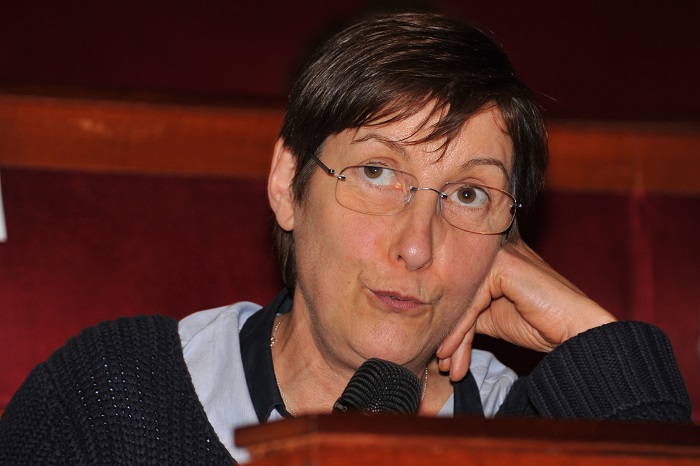Geneviève: “Shaken Up, I Was Convinced I Had to Change”

On October 17, 2014, the World Day for Overcoming Poverty, Geneviève de Coster, an ally of ATD-Fourth World in France for over 30 years spoke publicly about what motivates her during an event held at France’s Economic, Social and Environmental Council.
“When I was in my twenties, I was fortunate to take a trip to Senegal with a small association that was helping victims of drought. I set off very happy to be able to help alleviate poverty! And there, I had the great fortune of meeting people who did not thank me at all for what I was doing. On the contrary! They explained to me how fed up they were. They said they were suffering and humiliated by everything we were doing for them, without asking their opinion, and, at the end of the day, without improving their lives.
“They showed me the abandoned wells that had been built by foreigners in areas where the water was salty. Other wells, built for gardening, were in areas without trees, and therefore where it was not possible to protect the crops from wild animals. Still other wells worked with pumps that they could not afford to maintain. A grocer went out of business because an association shipped in donated notebooks for schoolchildren in the village, whereas he used to sell notebooks… All this was as if, because they were poor, they were unable to imagine and to create things by themselves and needed other people to decide what was good for them.
“Why had I never thought of that before?
“I returned to France, shaken up, and convinced that I had to change the way I saw things. What was true for the Africans I had met was surely true for their compatriots and for the rest of the world.
“It is thanks to changing my outlook that I found ATD Fourth World. Thanks to ATD, I have been able, with great humility, to walk alongside people whose lives are very difficult. My own family’s life has evolved thanks to these encounters; our family has been both shaken up and enriched. We have learned more about tolerance, respect, and brotherhood. We have also learned to question ourselves, and to accept the fact that we may not understand. We have learned to listen and to hear.
“What I have learned in Africa still applies. And this is still my fight — refusing to have on one side those who depend on charity and on the other side those who benefit from having rights. Human rights are for everyone. This is unquestionable. There is no possible exception to this. Rights for all must exist without condescension and unconditionally. Rights are steadfast and definitive for everyone.
“The only consideration is that we are all human beings.
“Things are changing… a little. But we are too alone, facing those who think that handouts are the right answer to poverty. We are too alone facing those who see people in poverty only as people with needs to fill, people to receive aid or to fear. In reality, people living in poverty are at the forefront of the expertise and the fight against extreme poverty. Without them, we will do what was done in the African villages where I went thirty years ago.
“More than ever, we need to come together to find ways of building a sense of community without being afraid of one another.”

